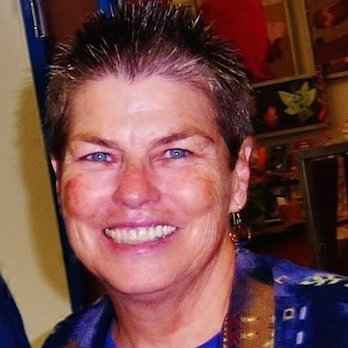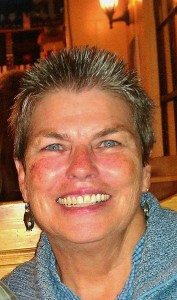There have been several instances in my life when I’ve woken up from some stupor and realized that it’s time to take charge of something that is important to me. Instead of continuing to be swept along by events and conditions as they were, I’d gathered my own internal forces together in order to direct my own passage through the event. Such reversals are rarely done without the influence of others met along the way. Within this past year, my gathering forces converged and swept me into making some changes regarding writing and publishing.
Adventures in Mother-Sitting was my first published book. After my mother died, I threw my heart and soul into writing a memoir for family and friends, one that told our story. At the time that it was completed, it had only been six months since my mother had died. I wasn’t even online at the time, as I was not sure yet as to what direction to take beyond getting through each day. The world of publishing was foreign to me; I’d never heard the term “indie” author. And I hadn’t planned for the memoir to be published. But then I had an unexpected encounter with an old friend who had just published his memoir. He gave me the name of his indie publisher and the rest was history, or so I had thought.
I’m grateful for all the help that I received in order for Adventures to become a published memoir. It was important at the time that I honor my mother’s long-held wish: for me to write a book. But grief is a powerful force with which to reckon. Caught up in grieving and not knowing anything about publishing or promoting, I relied more on others than I did myself. I didn’t pick up my memoir again for a long time. I did set myself up to be online, but for a while, I merely did whatever I could to make it through my days. It took me over a year to once again feel my curiosity stirring, a surge that told me I was ready to tackle something new.
 (Whistling Ducks perched on the dock by Dody’s Florida home)
(Whistling Ducks perched on the dock by Dody’s Florida home)
Throughout that next year, I began to explore the world of promoting, signing up to be on Facebook, LinkedIn, and Twitter plus some other writing sites. It was through my connections with authors on LinkedIn and Twitter, though, that I began to be educated. Tweeting became a lifeline, engaging me and connecting me with indie authors of all genres, some who wrote memoirs and others who wrote fiction. For the first time since my mother had died, I began to feel alive with excitement and purpose. Coincidentally, people were beginning to read Adventures and give me feedback on my story via reviews.
It had been easier to slip into a space of viewing my memoir only through my own eyes; that’s how it was for me after I finished writing Adventures. My memoir felt complete to me—family and friends gave me feedback that said it was. Even the initial readers gave it five stars. So I let it be. Truthfully, I really didn’t want to think about having to read the finished memoir much less do a revision. I didn’t even want to write a sequel about life after caregiving, as some had suggested. I wanted to move on with my life and continue to write, but this time, write fiction.
Because of my interactions with other authors and the fact that I was an avid reader, I began to pay attention to book covers. I’d always been drawn first to the cover of a book. If the cover caught my attention, I’d open it and read the first few pages to see if the author’s words engaged me. But I didn’t do that with Adventures. I was being like an ostrich, burying my head in the sand—it was a long while before I acknowledged an urge to take a good look at my memoir’s cover. Whenever I glanced at the cover, I’d only notice our smiles in the photo and remember the moment that this picture of Mother and I was taken. But I was gathering information, and concurrently, my inner force was stirring, preparing for the time when I’d recognize that the cover did not measure up to the quality I wanted readers to see.
This is what I’ve learned: writing is an art, and like all creative activities, it requires study and loads of practice. Writing a novel or a memoir requires different skills than those I’d used previously when writing technical manuals. In order to hone one’s skills for writing books, an open mind to hear feedback from readers and other authors is a key ingredient. I comprehended this while writing my first piece of fiction, a short story titled A Sacred Journey. It was gratifying to get feedback from others, especially from an author whose novels were favorites and whose writing skills I’d come to admire: Julia Hughes. It was very exciting to watch my story go through changes as I rewrote passages that came even more alive for me. The experience was exhilarating. When it came time for me to decide on a book cover, I chose carefully, exploring until my gut centered on Laura Wright LaRoche of LLPix Designs. After receiving such a marvelous cover from Laura, the comparison in quality to my memoir’s cover began niggling at me.
After my short story was published, I began working on a new story. I was over 10,000 words into it when the niggling thought regarding my memoir wouldn’t leave me alone. Laying aside the new story, I gave in to my gut feeling to flip through Adventures and grade my writing skills against what I’d recently learned. It did not surprise me to see that my memoir didn’t measure up to the level I wanted it to have, neither the cover nor the writing. I knew that the memoir told my story well enough to engage readers; their reviews told me so. But the writing itself no longer satisfied me.
I’ve always been intrigued by the flavor that comes with recognizing some encounters as serendipitous. Two events happened concurrently with my dissatisfaction. The first was a four-star review that honored the story itself yet offered suggestions to clean up the writing. I took notice of those suggestions because I’d noted them myself while perusing my memoir. The second was what I consider to be a prominent serendipitous encounter with an indie author whose novel I’d just read. It wasn’t just that the story in Crooked Moon moved me so deeply—it was the high level of skill with which this author wrote, particularly the dialogues between characters. I wanted Adventures to measure up to the high standard of writing that I’d noted in this novel and in the subsequent novel I’d read by this exceptional author. Could I write as vividly, take a reader as deeply into my mother-sitting story as this author had taken me into hers? I wanted to try but was hesitant to even begin.
It was the unwavering encouragement from Lisette Brodey, Crooked Moon’s author, which stoked my spark into a flame for the revision of Adventures in Mother-Sitting. She became the wind beneath my wings; I’m convinced that my mother gave her an angelic nudge from heaven to help me. Even before my part-time GED teacher job ended for the summer, I cracked open my memoir to begin putting into practice all that I had learned.
The storyline itself did not change. I deleted some redundant passages, particularly ones that were too detailed with regard to my care of Mother. I also refined some of the more poignant experiences that I’d had relative to our changing relationship. I’m told that the descriptions of those are more vividly expressed in this new version because of the way that I’ve learned to craft my words. There were two chapters regarding my spiritual focus that just didn’t fit in the memoir. I removed them though didn’t toss the chapters away. They’re in a separate file because I felt that the chapters were well-written and convey my outlook on spirituality quite succinctly. Also, I’ve been learning to temper my habit of writing long, lofty sentences. This style is great for writing prose, but not appropriate for this memoir. I’d like the reader to stay with me in the story, not go off with me on some tangent.
Reading through Adventures and doing the revision was one of the most meaningful experiences of my life. It was intensely cathartic for me, taking me back through the experiences I’d had while taking care of my mother. It brought back the joy, the richness embedded in our final few years together. I’ve just completed the upload to Amazon and am ecstatic for what I’ve accomplished.
Midway through the rewrite, an unexpected gift came from Charles Roth of CMRdesign. He created the loveliest book cover. Using the same photo that was on the initial book, Charles skillfully removed the birthday confetti that was draped over our faces, leaving an observer to focus only on our joy. Every time I look at the new cover of Adventures, my heart expands, reminding me that the love shared between my mother and me still remains. This new cover from Charles is priceless—I’m deeply grateful.
In concert with my decision to rewrite Adventures, a surge of desire to become my own publisher set in—I’d done my homework. Making this change in direction happened accordingly. Honesty and respect is a great policy. To this end, Charles came to my rescue once again. The logo for Whistling Duck Books is exquisitely designed—I love looking at it. Every morning when my local whistling ducks wake me up, I think of Charles and this striking logo he designed, one that reflects my decision to follow my heart’s desire.
I’m thankful to many authors I’ve met in the stream for their friendship, their example, and their support of my efforts. My connection with these wonderful people adds such richness to my life, personally and as an author. In particular, I’m immensely grateful to Lisette Brodey and Julia Hughes, authors extraordinaire, for their unwavering guidance, helpfulness, and encouragement. It is my hope that readers will find that this second edition of Adventures in Mother-Sitting is written in a way that invites them to step into my story with me. Although it’s a hard one to experience, the story is one in which compassion, humor, and love overshadows every tough moment.
* * *
After a somewhat convoluted career path in various business-related and mental health endeavors, Doreen (Dody) Cox has settled into a later-in-life passion: writing. Her first book, Adventures in Mother-Sitting, is a memoir of her three years as a full-time caregiver to her mother, coping with dementia. It has just been released as a second edition. A Sacred Journey is a short story with themes inspired by her love for nature, curiosity regarding spirituality, and respect for dignity in death.
Dody resides in Florida and is a part-time GED teacher of multicultural students. The class is held offsite in one of her favorite places: a library.
CONNECT WITH DODY






